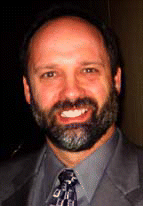MARCO ISLAND, FL-A three-year retrospective study of in-office transnasal esophagoscopy appears to show that the procedure can be adopted for safe use in private practice-and with considerable savings to the health care industry when compared with rigid esophagoscopy.
Explore This Issue
May 2007Transnasal esophagoscopy is safe, well-tolerated, and easy to perform in the private practice setting, said Roger Cole, MD, a board-certified specialist in otolaryngology at the Carolina Ear, Nose and Throat Head and Neck Surgery Center in Hickory, NC.
The evaluation of the procedure was performed by a team of six doctors from the center that has offices in Hickory, Lenoir, Lincolnton, Mooresville, and Denver, NC. The procedures were performed between July 2002, and June 2005. The doctors reported on 371 patient cases.
Transnasal esophagoscopy, said Dr. Cole, also offers further advantage over rigid esophagoscopy because there is no need for sedation and it allows for more efficient use of patient and physician time.
We reviewed the charts of the patients for indications, diagnostic studies performed, post-procedural diagnosis, patient outcomes, and tolerance, Dr. Cole said in his oral presentation at the first combined meeting of the Triological Society here.
The records review indicated that the procedure had been used to evaluate dysphagia and odynophagia; evaluate laryngopharyngeal or gastroesophageal reflux disease; and biopsy lesions found in the esophageal, laryngeal, and pharyngeal areas.
During the three-year period, the clinic performed 131 transnasal esophagoscopy procedures in the office; another 197 transnasal esophagoscopy procedures were done with acid level (pH) monitoring and manometry; three procedures were done with just pH monitoring plus transnasal esophagoscopy; and 40 manometry plus transnasal esophagoscopy procedures were performed.
There were only two aborted attempts due to patient intolerance during the three years, Dr. Cole reported. That’s less than 0.6 percent. No local anesthesia was used.
But doctors found that nasal decongestion and topical anesthesia are most important to the success of the procedure. They also reported no complications during procedural use.
Post-procedural diagnoses included 216 cases of dysphagia, 212 of laryngopharyngeal or gastroesophageal reflux disease, 93 of hoarseness, 40 with cough, 38 with hiatal hernia, 36 with foreign body sensation/choking, 27 with esophageal candidiasis, 21 with esophageal stricture, 21 with esophagitis, seven with hematemesis/hemoptysis, four with malignancy, and two with Zenker’s diverticulum.
We feel that direct visualization increases diagnostic accuracy, allowing for more efficient disease management, Dr. Cole said. The use of transnasal esophagoscopy allowed the doctors to positively identify two of three cases of esophageal cancer. The third esophageal lesion was extraluminal. Five laryngeal lesions were biopsied, he said. One of the cases proved malignant.

Leave a Reply